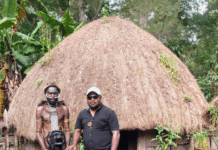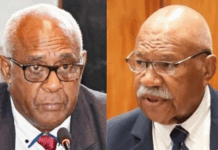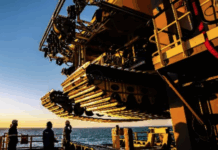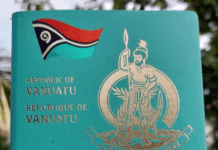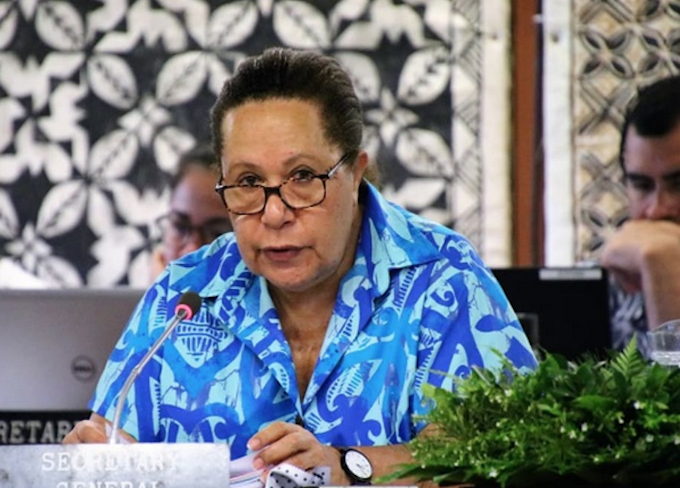
By Koroi Hawkins, RNZ Pacific editor, and Caleb Fotheringham, RNZ Pacific journalist
A Pacific elder and former secretary-general of the Pacific Islands Forum says Pacific leaders need to sit up and pay closer attention to AUKUS and the Indo-Pacific strategy and China’s response to them.
Speaking from Port Moresby in Papua New Guinea, Dame Meg Taylor said Pacific leaders were being sidelined in major geopolitical decisions affecting their region and they need to start raising their voices for the sake of their citizens.
“The issue here is that we should have paid much more attention to the Indo-Pacific strategy as it emerged,” she said.
“And we were not ever consulted by the countries that are party to that, including some of our own members of the Pacific Island Forum. Then the emergence of AUKUS — Pacific countries were never consulted on this either,” she said.
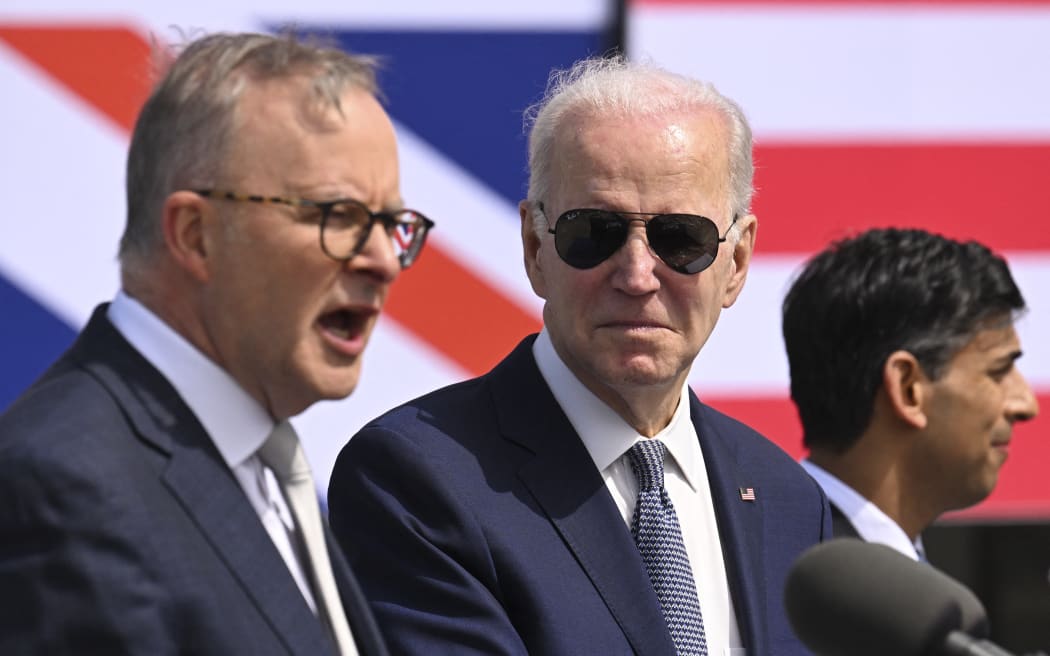
Last week in San Diego, the leaders of the United States, the UK and Australia — President Joe Biden, Prime Minister Rishi Sunak and Prime Minister Anthony Albanese respectively — formally announced the AUKUS deal.
It will see the Australian government spending nearly $US250 billion over the next three decades to acquire a fleet of US nuclear submarines with UK tech components — the majority of which will be built in Adelaide — as part of the defence and security pact.
Its implementation will make Australia one of only seven countries in the world to have nuclear-powered submarines alongside China, France, India, Russia, the UK, and the US.
“We believe in a world that protects freedom and respects human rights, the rule of law, the independence of sovereign states, and the rules-based international order,” the leaders said in a joint statement.
“The steps we are announcing today will help us to advance these mutually beneficial objectives in the decades to come,” they said.
Following the announcement, China’s foreign ministry spokesperson Wang Wengbin said by going ahead with the pact the US, UK and Australia disregarded the concerns of the international community and have gone further down “the wrong path”.
“We’ve repeatedly said that the establishment of the so-called AUKUS security partnership between the US, the UK and Australia to promote cooperation on nuclear submarines and other cutting-edge military technologies, is a typical Cold War mentality,” Wang said.
“It will only exacerbate the arms race, undermine the international nuclear non-proliferation regime, and hurt regional peace and stability,” he said.
The 2022 Indo-Pacific Strategy is the United States’ programme to ” advance our common vision for an Indo-Pacific region that is free and open, connected, prosperous, secure, and resilient.”
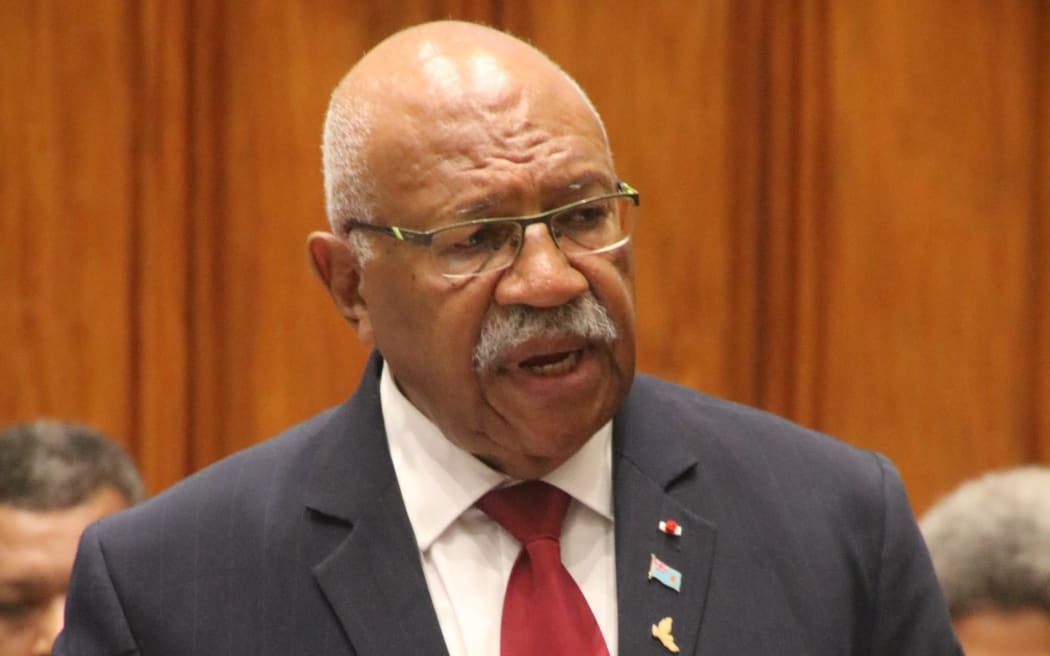
The Rarotonga Treaty
On his return from San Diego, Australia’s Albanese stopped over in Suva where he met his Fijian counterpart Sitiveni Rabuka.
After the meeting, Rabuka told reporters he supported AUKUS and that Albanese had assured him the nuclear submarine deal would not undermine the Treaty of Rarotonga — to which Australia is a party — that declares the South Pacific a nuclear weapon free zone.
But an Australian academic said Pacific countries cannot take Canberra at face value when it comes to AUKUS and its committment to the Rarotonga Treaty.
Dr Matthew Fitzpatrick, a professor in international history at Flinders University in South Australia, said Pacific leaders need to hold Australia accountable to the treaty.
“Australia and New Zealand have always differed on what that treaty extends to in the sense that for New Zealand, that means more or less that you haven’t had US vessels with nuclear arms [or nuclear powered] permitted into the ports of New Zealand, whereas in Australia, those vessels more or less have been welcomed,” he said.
Professor Fitzpatrick said Australia had declared that it did not breach it, or it did not breach any of those treaty commitments, but the proof of the pudding would be in the eating.
“I think it’s something that certainly nations around the Pacific should be very careful and very cautious in taking at face value, what Australia says on those treaty requirements and should ensure that they’re rigorously enforced,” Professor Fitzpatrick said.
Parties to the Rarotonga Treaty include Australia, Cook Islands, Fiji, Kiribati, Nauru, New Zealand, Niue, Papua New Guinea, Samoa, Solomon Islands, Tonga, Tuvalu, and Vanuatu.
Notably absent are three north Pacific countries who have compacts of free association with the United States — Palau, Marshall Islands and the Federated States of Micronesia.
Dame Meg Taylor said Sitiveni Rabuka’s signal of support for AUKUS by no means reflected the positions of other leaders in the region.
“I think the concern for us is that we in the Pacific, particularly those of us who are signatories to the Treaty of Rarotonga, have always been committed to the fact that we wanted a place to live where there was no proliferation of nuclear weapons.
“The debate, I think that will emerge within the Pacific is ‘are nuclear submarines weapons’?”
Self-fulfilling prophecy
Meanwhile, a geopolitical analyst, Geoffrey Miller who writes for political website Democracy Project, said the deal could become a “self-fulfilling prophecy” for conflict.
“Indo-Pacific countries all around the region are re-arming and spending more on their militaries,” Miller said.
Japan approved its biggest military buildup since the Second World War last year and Dr Miller said New Zealand was reviewing its defence policy which would likely lead to more spending.
“I worry that the AUKUS deal will only make things worse,” he said.
“The more of these kinds of power projections, and the less dialogue we have, the more likely it is that we are ultimately going to bring about this conflict that we’re all trying to avoid.
“I think we do need to think about de-escalation even more and let’s not talk ourselves into World War III.”
Miller said tensions had grown since Russia invaded Ukraine and analysts had changed their view on how likely China was to invade Taiwain.
This article is republished under a community partnership agreement with RNZ.



